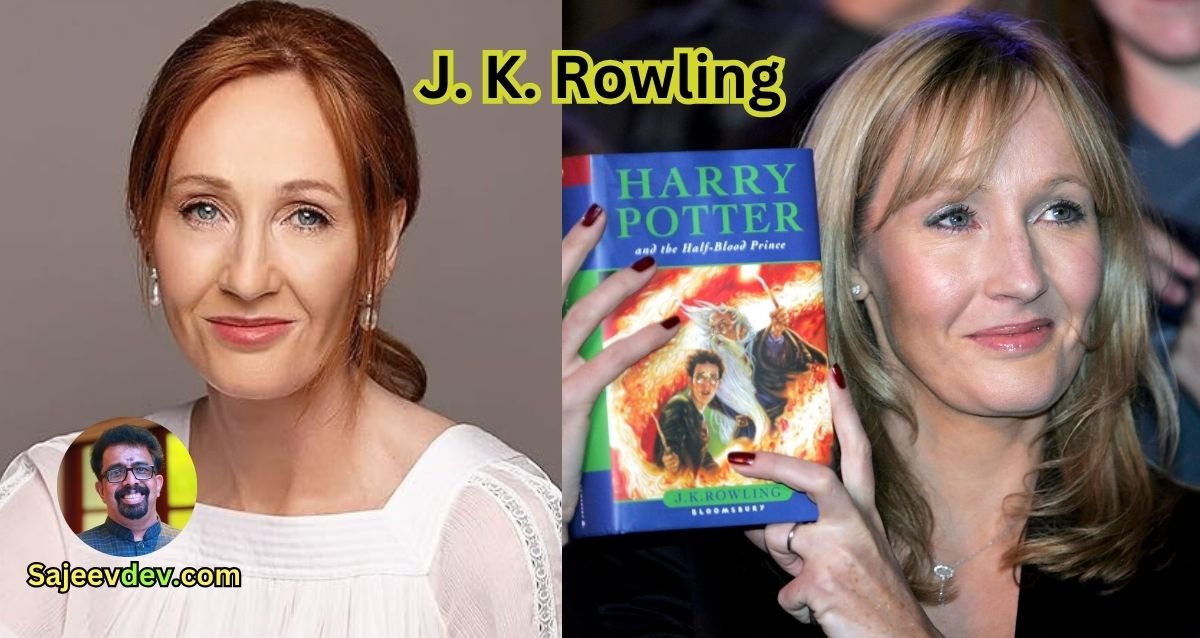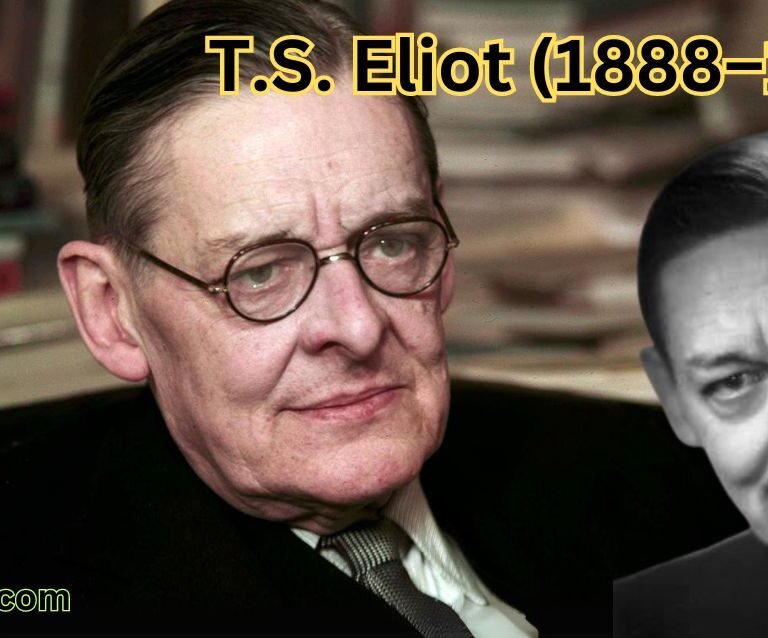Early Life and Education
J.K. Rowling was born on July 31, 1965, in Yate, Gloucestershire, England. Growing up in a modest and traditional British household, Rowling was the daughter of Peter, a Rolls-Royce aircraft engineer, and Anne, a science technician. From a young age, Rowling exhibited a keen interest in literature and storytelling, crafting her first tale at the age of six—a story about a rabbit christened “Rabbit”.
Rowling’s early education began at St Michael’s Primary School, where her imaginative spirit was nurtured under the guidance of a headmaster reputed to have been the inspiration for Hogwarts’ own headmaster, Albus Dumbledore. Her academic pursuit continued at Wyedean School and College, where she formed a close friendship with Sean Harris, who would later be immortalized in her writings as “Ron Weasley”.
Post-basic education, Rowling’s choice to study at the University of Exeter marked a significant milestone. She enrolled in a French and Classics program, sharpening her linguistic prowess and deepening her cultural insights. The program also facilitated a one-year stint in Paris, further broadening her intellectual horizons and shaping her narrative techniques. During her time at Exeter, she was notably described by lecturers as a quiet and bookish student, who spent more time in libraries than in social scenarios—immersed in volumes of literary importance which would indelibly shape her future characters and storylines.
The skills acquired throughout her educational journey, combined with a lifelong passion for writing, set the stage for J.K. Rowling’s eventual foray into the literary world. Indeed, the foundational experiences of her early life and educational background were instrumental in crafting the rich tapestry of her literary oeuvre, culminating in the creation of the beloved and globally renowned “Harry Potter” series.
The Birth of Harry Potter
The genesis of the Harry Potter series is a tale intertwined with J.K. Rowling’s own life, marked by both adversity and the spark of creativity. During her tenure as a researcher and bilingual secretary for Amnesty International, Rowling’s imagination gave birth to the world of Harry Potter. It was in 1990, during a delayed train trip from Manchester to London, that the idea for a young wizard attending a school of magic came to her fully formed. This moment of inspiration, however, was only the beginning of a long and arduous journey.
During the early 1990s, Rowling faced numerous personal challenges that shaped the creation of her now-iconic series. The loss of her mother in 1990 was a devastating blow, profoundly impacting the themes of loss and grief pervasive throughout the Harry Potter books. This period also saw Rowling grappling with financial hardship; as she wrote the earliest manuscripts of Harry Potter and the Philosopher’s Stone, she was subsisting on state benefits and struggling to make ends meet. These experiences of adversity and perseverance are mirrored in Harry Potter’s own journey, as he overcomes his troubled past to forge his destiny.
The rich tapestry of Hogwarts, filled with its own history, struggles, and triumphs, can be seen as a reflection of Rowling’s own experiences. Themes of friendship, bravery, and resilience are interwoven throughout the narrative, resonating deeply with readers worldwide. The characters, settings, and plots were further influenced by her love for classic literature and folklore. Elements of British culture, from boarding schools to historical allusions, imbue the series with its distinctive charm and relatability.
As the world Rowling created began to take shape on paper, it became clear that her work transcended the mere escapism of fantasy. It dealt with real, relatable life issues, explored through the lens of wizardry and adventure. Rowling’s conception of Harry Potter, grounded in her personal struggles and life experiences, ultimately burgeoned into a global phenomenon, captivating millions and leaving an indelible mark on modern literature.
The Success of the Harry Potter Series
In 1997, J.K. Rowling released “Harry Potter and the Philosopher’s Stone,” marking the beginning of a literary phenomenon. The success of this initial novel set the stage for what would become one of the most influential and lucrative series in history. Cumulatively, the Harry Potter books have sold over 600 million copies worldwide, a testament to their universal appeal. The series has been translated into 84 languages, enabling readers from vastly different cultures to dive into the magical world of Hogwarts.
Beyond book sales, the Harry Potter series gave birth to a global media franchise. The brand now encompasses blockbuster films, theme parks, and even stage productions. Warner Bros. meticulously adapted each of the seven books into eight successful films, collectively earning billions of dollars. The Wizarding World of Harry Potter theme parks in Orlando, Hollywood, and Japan attract millions of visitors each year, providing an immersive experience that brings the magic to life.
The cultural impact of the Harry Potter series cannot be overstated. It has inspired an entire generation of readers and reinvigorated children’s interest in literature, particularly within the fantasy genre. The themes of friendship, bravery, and the battle between good and evil resonate with readers of all ages. Educational experts have noted that the series has encouraged reluctant readers to engage with books, offering a gateway into a broader world of reading.
Furthermore, the Harry Potter series has had a profound effect on the publishing industry. It has demonstrated the potential for children’s literature to achieve mainstream success, encouraging publishers to invest more heavily in the genre. The series has set a benchmark for literary success and has inspired numerous authors to explore the realms of fantasy in their own works.
Critical Reception and Awards
J.K. Rowling’s work has encountered a broad spectrum of critical reception, ranging from effusive praise to pointed criticism. On one hand, her Harry Potter series has been lauded for its intricate world-building, compelling characters, and moral complexity. Critics and fans alike appreciate the series’ ability to engage both young and adult readers, creating an expansive literary universe that has a significant cultural impact. Themes such as the struggle between good and evil, the power of love and friendship, and the importance of choice resonate deeply across generations.
On the other hand, some literary critics argue that Rowling’s prose is overly simplistic, and at times, the series has been described as derivative. Additionally, certain depictions within her books have invited scrutiny over whether they adequately address or inadvertently perpetuate stereotypes. Her later works, including the Cormoran Strike series written under the pseudonym Robert Galbraith, have similarly experienced mixed reviews. While some reviewers commend the intricate plotting and mature themes, others critique them for their pacing and detail.
Despite the mixed critical opinions, J.K. Rowling has received numerous accolades and honors that underscore her influence and success. Among her notable recognitions, she has been awarded an OBE (Officer of the Order of the British Empire) and a Companion of Honour for her services to literature and philanthropy. Additionally, the financial success of her works earned her the title of the world’s highest-paid author by Forbes in 2008, a testament to her widespread popularity and commercial success.
The recognition doesn’t stop at mere financial success and awards. Rowling’s books delve into social issues such as class disparity, prejudice, and the importance of tolerance. Her portrayal of these themes fuels ongoing analysis and discussion, situating her work within broader socio-cultural conversations. The debates surrounding her literary contributions and the awards she has accrued reflect a multidimensional legacy, one that continues to shape both the literary world and society at large.
Writing Beyond Harry Potter: The Casual Vacancy and Robert Galbraith
Following the monumental success of the Harry Potter series, J.K. Rowling ventured into new literary territory with the publication of her first novel for adults, The Casual Vacancy, in 2012. This book marked a significant departure from the magical world of Hogwarts, delving instead into the gritty realism of life in a small English town. The themes of the novel are considerably more mature, addressing issues such as social inequality, addiction, and the complexities of human relationships. While it received a mixed reception from critics, with some praising its depth and others finding it less enthralling than her previous works, The Casual Vacancy affirmed Rowling’s versatility as a writer.
In addition to The Casual Vacancy, Rowling embarked on a new literary journey by adopting the pseudonym Robert Galbraith. Under this alias, she penned the Cormoran Strike series, beginning with The Cuckoo’s Calling in 2013. The crime fiction novels follow the life of private detective Cormoran Strike and his assistant Robin Ellacott, combining elements of classic detective fiction with modern storytelling. The series has been lauded for its intricate plots, rich character development, and the dynamic between its protagonists.
Rowling’s decision to use a pseudonym was driven by a desire to write without the preconceptions that came with her famous name. She aimed to separate her crime fiction from the Harry Potter phenomenon, allowing readers and critics to judge the books on their own merits. It wasn’t until after the release of The Cuckoo’s Calling that her true identity was revealed, resulting in a surge of interest and sales. Despite the initial anonymity, the Cormoran Strike series has garnered a loyal following and critical acclaim, further solidifying Rowling’s reputation as a versatile and talented author.
Philanthropy and Political Involvement
J.K. Rowling’s philanthropic endeavors reflect her deep commitment to social issues, especially those affecting vulnerable populations. One of her most significant contributions is the establishment of Lumos, an international non-governmental organization dedicated to ending the institutionalization of children worldwide. Lumos works to reform child protection systems, focusing on family-based care and community services, thereby ensuring that children can grow up in loving, supportive environments. Rowling’s activism for children’s rights extends to her creation of the Volant Charitable Trust in 2001. This trust supports projects alleviating social deprivation, particularly targeting at-risk women and children, as well as funding research and treatment for multiple sclerosis, a cause close to Rowling’s heart given her mother’s battle with the disease.
Moreover, Rowling’s philanthropic reach extends beyond her own foundations. She has made generous personal donations to medical research and treatment facilities, and she has supported a wide array of literacy and educational programs. Her focus on these areas not only stems from personal experiences but also reflects a broader compassion for societal betterment through education and healthcare reforms.
In the realm of politics, Rowling is an outspoken supporter of progressive causes. Her financial contributions to Britain’s Labour Party underscore her commitment to social justice and equitable policies. Her political involvement is marked by her vocal stance on major issues, including her opposition to Scottish independence in the 2014 referendum. Rowling argued that Scotland’s secession from the United Kingdom would be economically and politically unwise, donating £1 million to the Better Together campaign. Furthermore, she has expressed strong disapproval of Brexit, advocating for the United Kingdom to remain in the European Union due to concerns about potential economic disruption and the erosion of social cohesion.
Overall, Rowling’s philanthropic and political engagements reveal a blend of deep personal values and a strategic vision for societal progress, driven by a belief in the transformative power of compassion, education, and political activism.
Controversies and Public Opinions
J.K. Rowling, a name synonymous with literary success, has faced substantial backlash due to her public statements on transgender issues. These remarks have not only incited criticism from a segment of her fan base but have also sparked significant debates within literary and cultural circles. Controversies surrounding Rowling began in earnest in 2019 when she voiced support for a British researcher who lost her job over what was deemed to be transphobic tweets. Subsequently, Rowling’s own tweets and essays on the topic have been perceived by many as transphobic, leading to widespread condemnation.
The backlash was immediate and intense, with numerous fans expressing their disillusionment across social media platforms. Several influential organizations, including various LGBTQ+ advocacy groups, condemned her stance, arguing that her comments undermine transgender rights and promote harmful stereotypes. Within the cultural community, many authors and public figures voiced their disappointment, asserting that her views contradict the inclusive ethos of the Harry Potter series.
Rowling’s defenders, however, argue that her statements fall within the bounds of free speech. They contend that the criticisms amount to an example of cancel culture, where the expression of controversial or unpopular opinions leads to disproportionate social ostracism. Some literary and academic circles have used this controversy as a case study to explore the balance between freedom of expression and responsible speech, especially for high-profile individuals like Rowling. In turn, debates have proliferated about the responsibility that comes with such influence and whether her remarks deserve the backlash.
The impact on Rowling’s legacy is multifaceted. Her contributions to literature and her philanthropy are unparalleled, yet the controversies have undeniably marred her public image. The polarized views surrounding her illustrate the broader cultural conflicts at play in society today, emphasizing the complexities involved when public figures engage with contentious social issues.
Legacy and Cultural Impact
J.K. Rowling’s legacy in the realm of literature and popular culture is nothing short of extraordinary. The Harry Potter series has captivated the imaginations of readers across generations, becoming a pivotal part of childhood for millions around the world. Its complex characters and intricate world-building have set new standards in the fantasy genre, inspiring numerous aspiring writers to explore their creativity and delve into fantastical narratives.
The cultural impact of the Harry Potter series extends far beyond the page. The books have given rise to a massive, dedicated fandom, evidenced by numerous fan conventions, themed attractions, and a vast expanse of fan fiction. This phenomenon has cultivated a sense of community and belonging among fans, influencing how fandom culture is perceived and celebrated today.
Rowling’s works have also had significant effects on literature, encouraging publishers to invest more in children’s and young adult fiction. The commercial success of the Harry Potter series demonstrated that well-crafted stories could transcend age barriers and become household staples. Consequently, it paved the way for subsequent fantasy series to emerge and flourish in popular culture.
Beyond her contributions to literature and fandoms, Rowling has used her platform to advocate for philanthropy and social causes. She has made substantial donations to various charities and established her foundation, Lumos, aimed at protecting disadvantaged children. Her commitment to humanitarian efforts underscores her influence not just as an author, but also as a pivotal figure in advocating for social change.
In the end, J.K. Rowling’s multifaceted legacy is an enduring testament to her impact on literature, culture, and society at large. Her work continues to inspire and foster a love for reading, creativity, and social activism, ensuring that the magic of her stories will enchant and motivate future generations for years to come.









